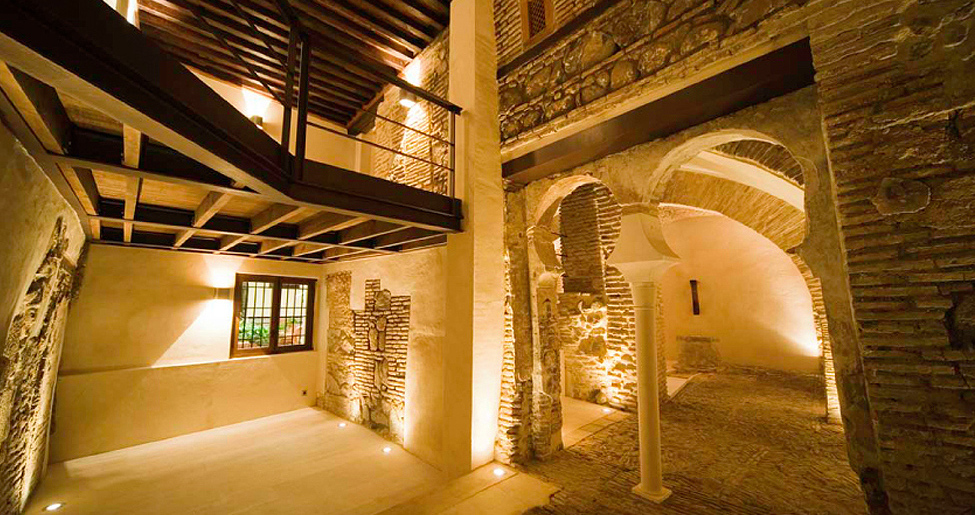
Archaeological vestiges of a primitive Islamic house from the Caliphate period, with a patio, a living room, and their architectural decoration: two horseshoe arches, one of them twinned. We can see over it, in the doorjambs, two Fátima Eyes or “hmsa”, one surrounded by birds (possibly hummingbirds given the slenderness and length of its peaks).
Both motifs are typical in Islamic art, and have a meaning of protection and rejection of evil influences, specifically against the evil eye (Fátima Hand) and perhaps funerary (in the case of the birds). Both of them are decorative motifs of pre-Islamic origin that must have had strong popular roots and are, to a certain extent, tolerated by the official Islamic doctrine, although, as in the case of birds, they come from a hadith or unofficial oral tradition attributed to Muhammad, in which they are identified to carry the souls of the good believers in their journey to Paradise.


